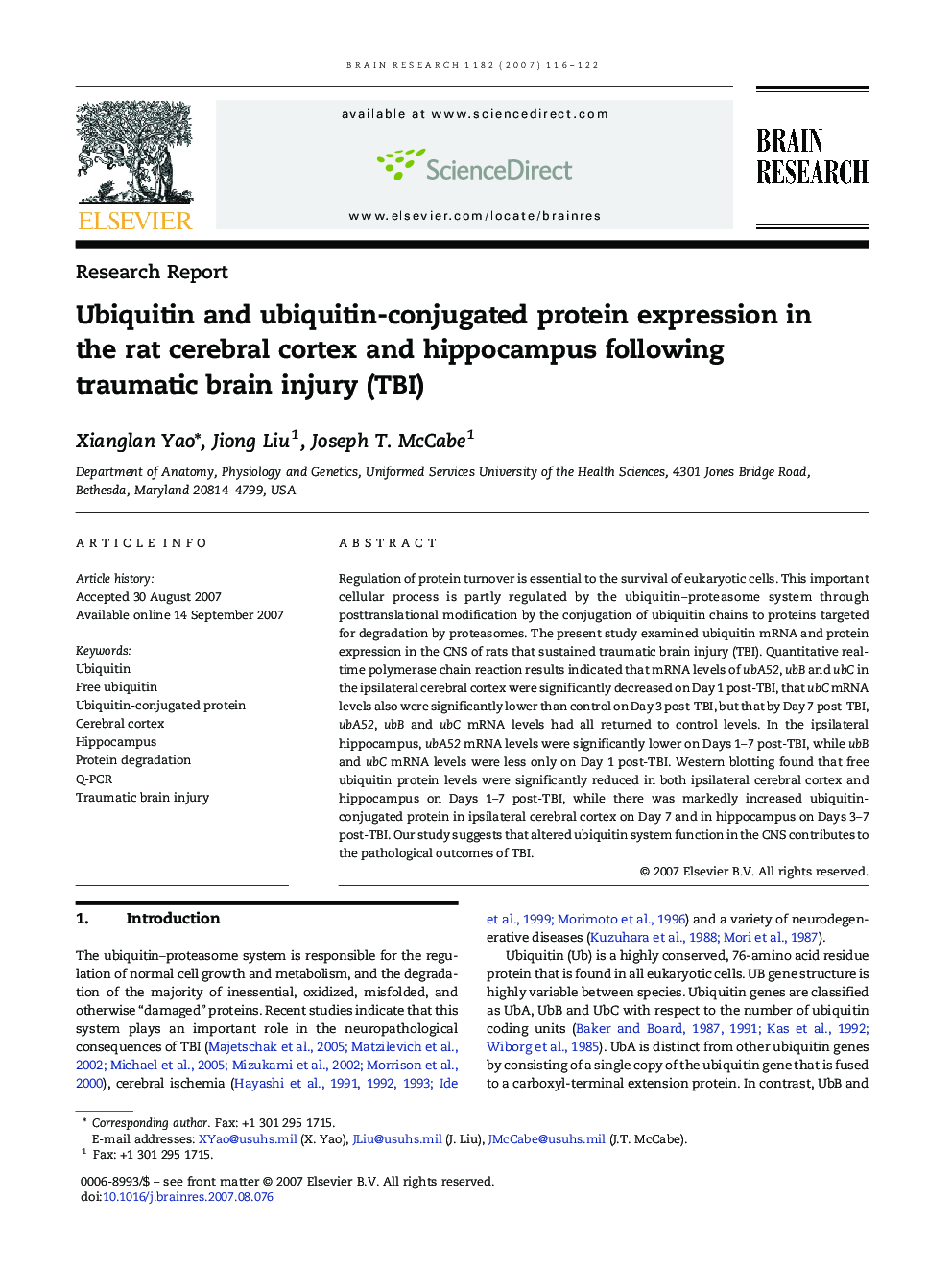| Article ID | Journal | Published Year | Pages | File Type |
|---|---|---|---|---|
| 4330472 | Brain Research | 2007 | 7 Pages |
Regulation of protein turnover is essential to the survival of eukaryotic cells. This important cellular process is partly regulated by the ubiquitin–proteasome system through posttranslational modification by the conjugation of ubiquitin chains to proteins targeted for degradation by proteasomes. The present study examined ubiquitin mRNA and protein expression in the CNS of rats that sustained traumatic brain injury (TBI). Quantitative real-time polymerase chain reaction results indicated that mRNA levels of ubA52, ubB and ubC in the ipsilateral cerebral cortex were significantly decreased on Day 1 post-TBI, that ubC mRNA levels also were significantly lower than control on Day 3 post-TBI, but that by Day 7 post-TBI, ubA52, ubB and ubC mRNA levels had all returned to control levels. In the ipsilateral hippocampus, ubA52 mRNA levels were significantly lower on Days 1–7 post-TBI, while ubB and ubC mRNA levels were less only on Day 1 post-TBI. Western blotting found that free ubiquitin protein levels were significantly reduced in both ipsilateral cerebral cortex and hippocampus on Days 1–7 post-TBI, while there was markedly increased ubiquitin-conjugated protein in ipsilateral cerebral cortex on Day 7 and in hippocampus on Days 3–7 post-TBI. Our study suggests that altered ubiquitin system function in the CNS contributes to the pathological outcomes of TBI.
